About fringe diplomacy
What is Fringe Diplomacy?
Fringe Diplomacy explores the space just beyond the boundaries of states and governments’ capacity and authority in international relations. Fringe diplomacy expands what is possible between communities and nations. It relies on individual citizens, communities, businesses, universities, artists and NGOs to occupy the space where governments cannot go.
Fringe Diplomacy is focused on smart, strategic and meaningful human interaction and engagement. Fringe brings together some of the most curious, creative and innovative individuals to engage in exchange, conversation and build opportunities for partnership and investment in emerging markets around the world.
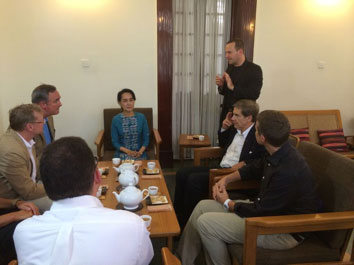
Why is Fringe Diplomacy needed?
Traditional diplomacy is cluttered with the trappings of political choreography and protocol. It is hampered by bureaucratic inertia and resource constraints. As a result, we often fail to successfully share and collaborate with others on the issues most important to us. In the world of engagement, this is a market failure.
We believe that the failure to engage and collaborate is augmented by the “hats we wear” -- the organizational, cultural and national biases we bring.
Fringe Diplomacy operates freely in the neglected dimension of official government relations – the human one. No scripted talking points. No deliverables designed solely for the photo op. No watered-down staff work. This is fringe.
Exercised correctly, Fringe Diplomacy creates an additional layer of access and personal relationships that help overcome political, business and societal crises between communities and nations.
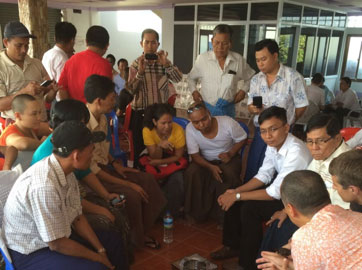
How does Fringe Diplomacy work?
Fringe Diplomacy focuses on two main pillars: Engagement Design and Intervention.
Two main pillers
ENGAGEMENT DESIGN
Enhancing personal and community relationships is a long-term endeavor. It requires building trust based on mutual interests. By identifying where public and private sector interests align and where domestic and international priorities converge, Fringe creates programs of common interests -- setting the right environment, putting the right people together, and facilitating meaningful discussions that result in action. These programs take various forms including thematic delegations, exchanges, trainings and partnerships (B2B or P2P). Fringe programs operate in countries and communities where the United States faces diplomatic obstacles or challenges of public perceptions
INTERVENTION
Building on the relationships and good-will established by our engagement efforts, Fringe works to resolve crises and advance common interests by identifying opportunities to intervene where a failure to collaborate exists. These interventions vary from case to case. Past Fringe interventions have relaxed international tensions, advanced international collaboration, reformed policies, and even succeeded in negotiating the release of political prisoners. The insights gained by our engagement projects provide Fringe the ability to identify the levers needed to achieve the interventions’ objectives.
Where have POD’s gone?
Partnership Opportunities Delegations have happened in the following markets:

Colombia
Focus: Angel & early investments

Myanmar
Focus: Food security, water distribution & alternative energy

Tanzania
Focus: Ag-tech, alternative energy & tech-access

Myanmar
Focus: Clean cookstoves & early-stage technology

Cuba
Focus: Alternative energy, waste management & business development

Cuba
Focus: Technology, hospitality, waste management & business development

Myanmar
Focus: Early-stage technology and waste management

Cuba
Focus: Technology, hospitality & business development

Cuba
Focus: Technology, hospitality & business development

Lebanon
Focus: Sustainable Development: education, technology and social services (including refugees)

Cuba
Focus: Technology, hospitality & business development

Lebanon
Focus: Social Innovation and Technology

Myanmar
Focus: Early Technology, and Small Scale Alternative Energy Solutions

Cuba
Focus: Technology, hospitality & business development

Cuba
Focus: Technology, hospitality & business development
Beware!
Awesome things are happening everywhere
Hover over our locations to see our outcomes
Markets
-
The measures taken by President Obama and President Castro demonstrate an unmistakable thaw on both sides of the Florida Straits. While the Embargo regime is likely to linger due to U.S. Congressional dynamics, reform has come to some trade and travel restrictions. This changing policy offers a great opportunity for early engagement between the communities in the U.S. and Cuba.
Outcomes:
- Creation of the first-ever innovation workshop 'InCúbate', which to-date included the training of 60 Cuban small businesses and entrepreneurs;
- Establishment of the first exchanges of young municipal elected officials (outbound and inbound)
- Three direct business-partnerships (including technology);
- Project on waste compost and recycling;
- Collaboration on conservation of historic buildigns (tech softwear);
- Collaboration on digitization and archiving of National Art Collection;
- An exchange of artists.

-
In August 2017, in response to coordinated attacks on security outposts, Myanmar’s military launched a series of brutal security clearance operations against the Rohingya, a Muslim minority group oppressed by Myanmar for decades. The military’s campaign of arson, murder, rape, and torture forced more than 700,000 Rohingya to flee across the border to Bangladesh and join tens of thousands of Rohingya who fled previously. There are now more than 900,000 Rohingya refugees living in makeshift camps, including the largest refugee camp in the world, in Bangladesh’s Cox’s Bazar District. Despite a desire by many to return home, Myanmar has not demonstrated it can guarantee Rohingyas’ physical security or protect their fundamental rights. It is likely that most Rohingya will remain in Bangladesh for at least several years. Meanwhile, Bangladeshi communities in Cox’s Bazar, already among the poorest in Bangladesh, have been adversely impacted by the influx of the Rohingya and tension between the communities is likely to increase over time. The Bangladesh government, incredibly magnanimous in opening its borders to the Rohingya, remains reluctant to allow for Rohingya refugees to establish a permanent presence within its borders. This hesitancy is borne of concerns for the socioeconomic and environmental impact the refugees have on Bangladesh, the potential for the Rohingya to become radicalized in the future, and a desire to maintain pressure on Myanmar to create conditions conducive to the Rohingyas’ repatriation. While understandable, Bangladesh’s position has made it more challenging to promote self-sufficiency among the Rohingya and to create opportunities for local communities’ to thrive. Rohingyas who arrived in Bangladesh within the past few years are not recognized as refugees and are formally barred from moving freely, working in Bangladesh, attending schools (refugee camps feature temporary learning centers for children, but almost no opportunities for adolescents), and owning cell phones, among other restrictions. Rohingya are, however, able to open bank accounts, are increasingly receiving vouchers (instead of in-kind humanitarian assistance) and, in practice, many are employed either in the informal economy as day laborers or are engaged in micro-businesses within the sprawling refugee camps. With Bangladesh’s tacit acceptance of market activity within the camps, there are significant opportunities to improve Rohingyas’ self-sufficiency and to reduce the financial and social burdens imposed on Bangladesh and donor governments. While some Bangladeshi communities in Cox’s Bazar have benefitted from the Rohingya influx – such as landholders and medium and large businesses – poorer Bangladeshis in Cox’s Bazar have faced new challenges: lower wages, higher prices, appropriation of communal forest and farmland, environmental degradation, and a reduction in quality and availability of basic services. With nearly all humanitarian assistance directed at Rohingya refugees, local communities feel neglected and overlooked. With the Rohingya providing a big new market, opportunities in environmental management, and the large manufacturing and shipping hub of Chittagong just 80 miles to the north, there is much scope to develop mutually beneficial business relationships among Bangladeshi communities and refugees.
Outcomes:
Together, we will engage with the local communities, examine the humanitarian situation in Cox’s Bazar, and explore opportunities for market-based solutions and impact investments to address the needs and concerns of both Rohingya refugees and Bangladeshi communities.
-
With the historic elections of 2015, Myanmar continues its steady transition to becoming a liberal democracy. This 50 million people-strong country is quickly becoming an attractive market and a budding ecosystem of small businesses. Myanmar is brimming with talented human capital, magnificent land, an abundance of natural and agricultural resources, recent explosion in access to mobile data and the political and cultural will to make significant economic strides.
Outcomes:
- Government of Myanmar formally joining the Global Alliance on Clean Cookstoves;
- Tax exemption for producers of clean stoves and a national awareness campaign to support their use;
- Formation of a small software company;
- Formation of a technology angle-investing network that will work with Myanmar investors as they look to invest and support local tech startups;
- Recycling, composting and usage of biodegradable bags business pilot, featuring Myanmar’s largest grocery shop network, City-Mart;
- Installation of a 'Portal' in Yangon - an art and engagement installation, continuously connecting everyday Myanmar and American people. Previous 'Portals' have been placed in Iran, Cuba, Afghanistan, New York, Washington and San Francisco;
- Growth and support of the Third Story Project - delivering and performing children books in schools, promoting tolerance and acceptance.
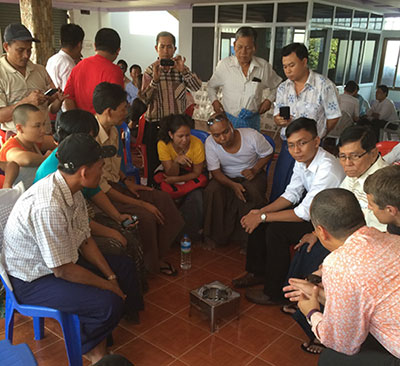
-
The Middle East, particularly Lebanon, faces an unprecedented influx of refugees due to the ongoing civil war in Syria the need for sustainable solutions to key social services are acute both for Lebanese and the refugee communities they host. Despite the instability, local communities are finding new and innovative ways to identify solutions to local community needs, especially in areas of health, education, water, and sanitation. These entrepreneurs have the power to fill service gaps that government, aid agencies and relief organizations do not have the capacity to do.
Outcomes:
- Beirut Innovation Week - follow-up event organized by a delegation participant in partnership with the UK Lebanon Tech Hub focusing on fin-tech and social impact as key areas for entrepreneurs in Lebanon. Financial inclusion and social impact experts from the UK joined the week-long event for a series of discussions and mentorship sessions with Lebanese entrepreneurs
- Partnerships with two start-up accelerators in Tripoli and Beirut;
- Sending experts to support capacity building of Syrian NGOs;
- A $5000 investment in an early-stage business of young refugee entrepreneur for a specialized filter to improve the quality of water for homes in camps;
- Fundraising initiative for local organization, the Nawaya Network;
- Digital Storytelling platform focused on local voices and stories;
-
With the recent improvement in security conditions and advancements based on the Free Trade Agreement with the United State, Colombia is set for a new era. As Latin America’s fourth largest economy, Colombia’s most robust commercial hubs: Bogota, Medellin, Barranquilla, and Cali, boast all the elements of a thriving entrepreneurial ecosystem: human capital, consumer markets, transportation and communication infrastructure, and an educational culture that supports entrepreneurship.
Outcomes:
- Two direct investments by participants in a local company and a community fund;
- Waste-management on-going project with the Bogota municipality.
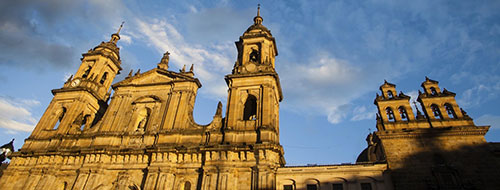
-
In recent years the Tanzanian economy have shown notable expansion facilitated by open-market policies geared toward global commerce. The transition to a market-based economy has increased foreign investment, expanded the financial sector, and paved the path for improvements in efficiency and infrastructure. Entrepreneurs in Tanzania have the potential to create healthy and stable regional economic ecosystems. This burgeoning class of scalable businesses represents a new target for international investment opportunities and partnerships.
Outcomes:
- New business partnerships on supply of water-wheels to family farms (Wello Water), localized solar stations (Juabar and Greenlinks), innovative latrine systems (Sanergy) and clean cookstoves (Prakti);
- Ten Tanzanian companies were trained through a BoomCamp workshop.
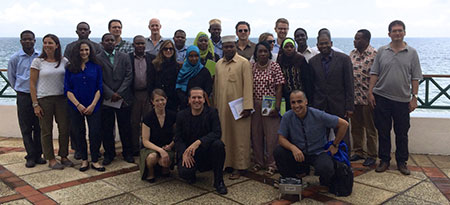
-
With official relations between Palestinians and Israelis still poisonous after a century of conflict, business and economic interdependence remain a positive avenue for progress and stability. No sector embodies this notion more than technology. With a mature and renowned startup ecosystem in Israel, and a budding and vibrant technology sector in Palestine, opportunities exist on both sides of the political divide.
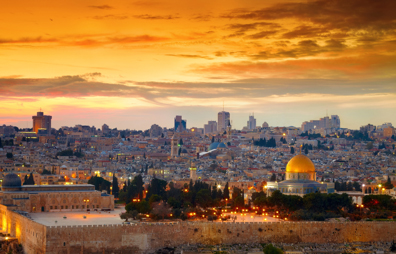
Press
See where Fringe Diplomacy has been featured











